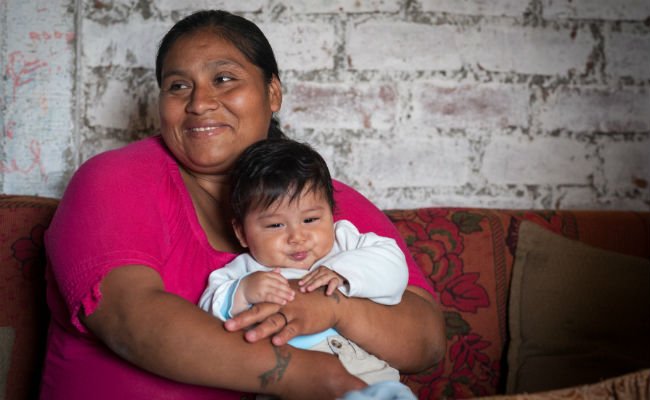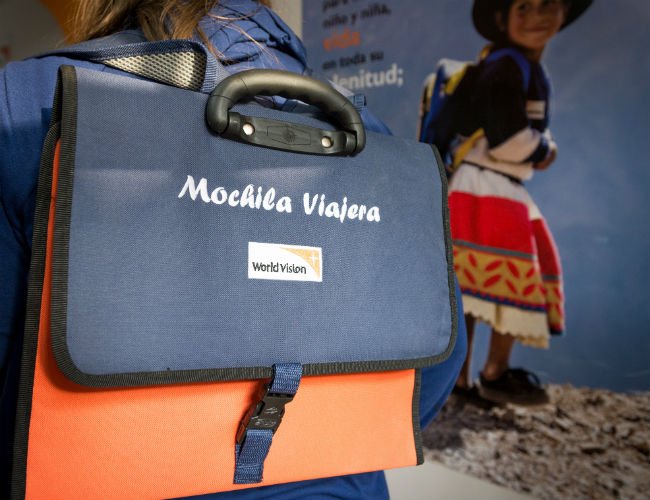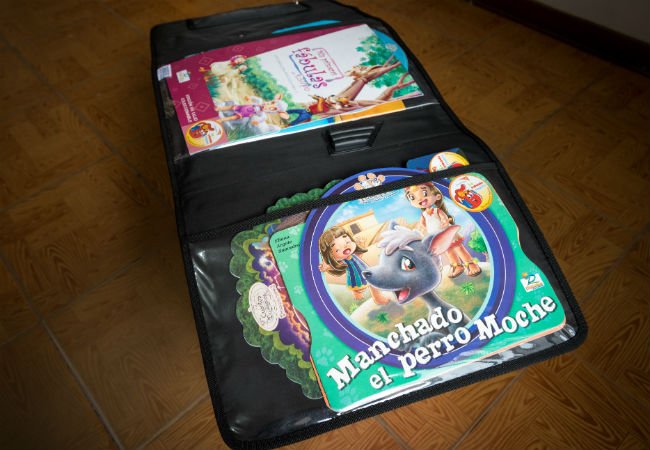When I was little, my favorite time of day was when my mom came to my room at bedtime and asked what story I wanted to read. We still laugh about how I used to excitedly chant, “nigh’ nigh’ moon!” – referring, of course, to the best bedtime story of all time, Goodnight Moon. Our nights reading together are special memories with my mom, and part of the reason I learned to read.
Many children in Chancay, Peru, don’t have this kind of time at night with their parents – but not because they don’t want to.
The small coastal town is surviving on a disappearing fishing industry, and books for bedtime are a luxury expense many parents don’t have the extra income to afford.
Anamaria Tarzona, a mother in Chancay, remembers a childhood without books.
“We didn’t have books when I was a child, because we couldn’t afford them.”

One small accessory is changing that for Anamaria’s children and the town of Chancay.
While many primary school classrooms share responsibility for a pet goldfish or a guinea pig, classrooms in Chancay are sharing something else: a backpack.
To encourage parents to engage with their children’s education and build children’s reading skills, each elementary school classroom in Chancay’s schools shares its own Traveling Backpack.
Each one contains six books, a mix of Peruvian classics and stories with themes of respecting parents, the dangers of discrimination, caring for the environment, and developing healthy habits. Plus, each book comes with discussion questions for the child and their family to complete after reading.
The backpack travels to one child’s home for six days before moving on to another family.

Anamaria finished high school but has higher hopes for her daughter, Maybe, and her siblings, to whom she’s been reading when the Traveling Backpack has made its way into their home.
Now that her kids love reading, “my husband buys used books from the recycler,” she says. “I hope that my kids will finish college, to be someone in life. I want them to be better than I am.”
Nine-year-old Maybe learned to read using the books in the backpack – and a life lesson, as well.
“I like the story about the llama, because I learned that you have to love everyone equally, not because of their color.”

No word on whether Goodnight Moon made the cut, but if the books in the Traveling Backpack are teaching lessons like that, I think they’re working just fine.
The Traveling Backpack was developed and implemented in Chancay’s schools as part of World Vision’s efforts to provide children with quality education around the world. You can make more projects like these possible by supporting World Vision’s Child Education Fund.
This article is adapted from a piece originally written by Elizabeth Hendley, found here.